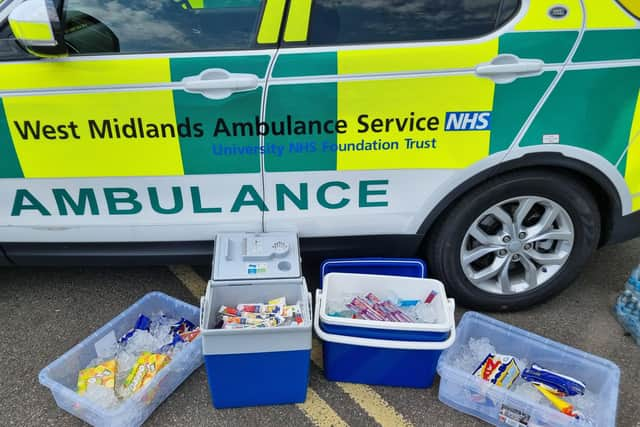West Midlands Ambulance Service issues heatwave mental health warning
and live on Freeview channel 276
The UK could be set to have its hottest day on record this week as temperatures continue to soar.
The Met Office has forecast highs of 41C and issued a red extreme heat warning on Monday and Tuesday across large parts of England, and temperatures are expected to reach 37C in Birmingham on Tuesday (19 July).
Advertisement
Hide AdAdvertisement
Hide AdThe West Midlands Ambulance Service has issued a warning that the extreme weather can have a particularly bad impact of those suffering with mental heath conditions.


A statement from the ambulance service, read: “The extreme heat can have serious consequences for those experiencing mental ill health. Some medications can impair the part of the brain responsible for temperature regulation. Make sure you stay cool, drink plenty of water and watch out for signs of heat exhaustion and heat stroke. You should check with your GP or mental health team if you think this could apply to you.
Two of the most commonly known types of psychiatric medication that can lead to overheating in hot weather are tricyclic antidepressants and antipsychotics. These kinds of medications can impair the temperature regulating area of the brain, the hypothalamus, from working 100% as it should.


Who is at greater risk of harm in the hot weather?
The heat can affect anyone, but some people run a greater risk of serious harm. These include the following:
- older people, especially those over 75
- babies and young children
- people with a serious chronic condition, particularly dementia, heart, breathing or mobility problems
- people with serious mental health problems
- people on certain medications, including those that affect sweating and temperature control (for example, diuretics, antihistamines, beta-blockers and antipsychotics
- people who are already ill and dehydrated (for example, from gastroenteritis)
- people who misuse alcohol or drugs
- people who are physically active (for example, soldiers, athletes, hikers and manual workers)
- homeless people
Advertisement
Hide AdAdvertisement
Hide AdA message from the editor: Thank you for reading. BirminghamWorld is Birmingham’s latest news website, championing everything that is great about our city - reporting on news, lifestyle and sport. We want to start a community among our readers, so please follow us on Facebook,Twitter and Instagram, and keep the conversation going.
Comment Guidelines
National World encourages reader discussion on our stories. User feedback, insights and back-and-forth exchanges add a rich layer of context to reporting. Please review our Community Guidelines before commenting.
